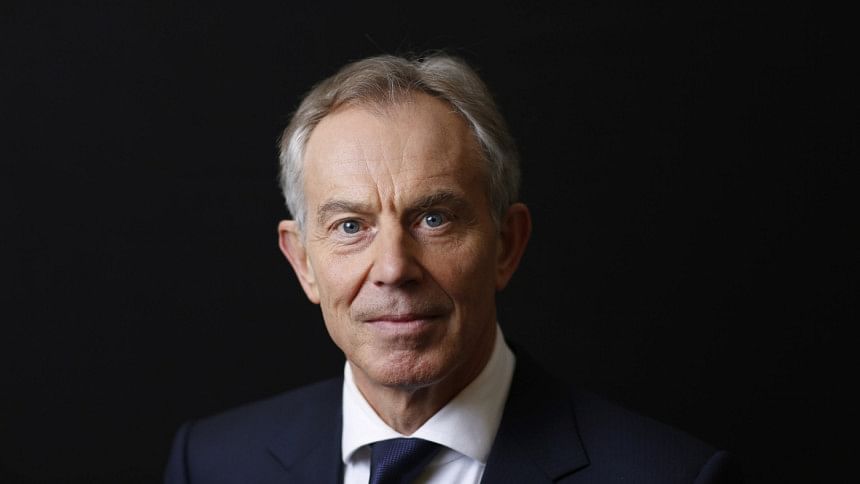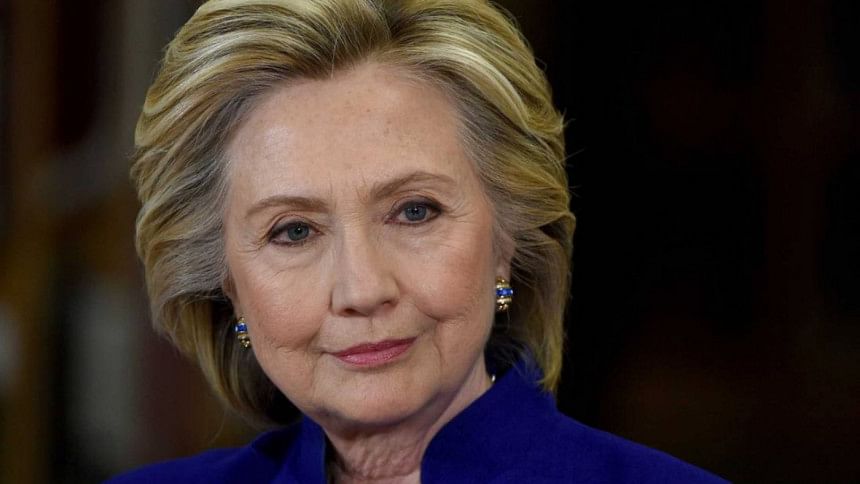Tony Blair indicted, Hillary Clinton still under the cloud

Two investigative reports have been published recently. The US FBI on July 5 revealed its report on Hillary Clinton's e-mail scandal, and on July 6, the British public inquiry on UK's role in the Iraq War was published.
The allegations against Hillary Clinton, the Democrat presidential nominee, surfaced in early 2015. As Secretary of State, Hillary Clinton has used her private email server for official communication instead of the secure official State Department federal server. Republican Congressmen accused Clinton that by using her private server she had compromised many classified, confidential and secret messages, giving access to hostile elements that endangered US national security. FBI has been investigating for over a year how classified information was handled on Clinton's personal email server.
On July 5, FBI Director James Comey announced, "Although we did not find clear evidence that Secretary Clinton . . . intended to violate laws governing the handling of classified information . . . they were extremely careless in their handling of very sensitive, highly classified information". He said there was no evidence that Clinton's server or devices had been hacked. He went on "...our judgement is that no reasonable prosecutor would bring such a case". The agency, therefore, was not recommending the Justice Department to bring charges against Hillary Clinton. Comey's statement was akin to a small slap on Hillary Clinton's wrist.
The following day, US Attorney General Loretta Lynch said, "I received and accepted their (FBI) unanimous recommendation that the thorough, year-long investigation be closed and that no charges be brought against any individual . . ." With this statement Hillary Clinton has been let off the hook on an allegation which repeatedly overshadowed her election campaign.
Incidentally, Lynch and former President Bill Clinton met in Phoenix a few days before Comey's press briefing, which sparked criticism on whether politics had influenced the FBI probe.

The Republican Party presidential nominee Donald Trump, who made the scandal a major election issue, immediately reacted strongly at Clinton's acquittal. He described it as "a bribe" and accused Lynch for dropping the case to get another four-year term as Attorney General. Trump also accused President Obama of being in the conspiracy and renewed his criticism saying the system "is rigged". Clearly, Trump has lost potent election ammunition to lambast the "crooked Clinton", as he calls her.
In a new twist, on July 7, the State Department announced that it was reopening an internal investigation of possible mishandling of classified information by Clinton and top aides. Thus, although Clinton may not face a case, she remains under the cloud and may be censured.
Across the Atlantic, in the UK, another report has castigated former Prime Minister Tony Blair's role in the Iraq War. Inquiries to "learn the lessons" of the Iraq War was ordered by Prime Minister Gordon Brown in June 2009. It took seven years for Sir John Chilcot, Chair of the inquiry team, to put together the huge report in 12 volumes. The report, covering the period from 2001 to 2009, details the background of the decision to go to war in 2003, troops preparedness, conduct of the war, and plans for the aftermath.
The findings of John Chilcot were: (i) there was no imminent threat from Iraq and peaceful options for disarmament were not exhausted; (ii) intelligence on WMD were flawed; (iii) British forces were not adequately prepared; (iv) warnings that invasion to eliminate Saddam Hussein would create Islamist extremists were disregarded; (v) there was no UNSC resolution to legally back the invasion; (vi) the government failed to achieve its stated objectives.
Before the war, Tony Blair discussed a "clever strategy" with George Bush about regime change in Iraq and in a memo to Bush wrote, "I will be with you, whatever" – which meant a blank cheque for Bush during the war. Tony Blair overestimated his ability to influence US' decisions on Iraq. The decision to go to war was taken by Blair, not by the cabinet or his legal officers. The report implies Blair lied to the Parliament and his countrymen.
The war cost the UK more than 179 soldiers, and by 2009, at least 150,000 Iraqis had died and more than a million displaced. The report does not recommend any action against Blair – legal or otherwise. The Chilcot report findings may, however, encourage families of dead soldiers to press "war crimes charges" against Tony Blair. Jeremy Corbyn, leader of the Labour party, described the war as "illegal" and apologised on behalf of Blair.
Soon after Chilcot's damning report, Tony Blair held a press conference and tried to exonerate himself. In an emotional, choked voice, he said, "I express sorrow, regret and apology than you may ever know or believe . . . There were no lies, parliament and cabinet were not misled," said Blair.
The reports bear immense significance both for Britain and the United States. For Britain, the report could not have come at a more difficult time. British politics is in deep chaos. Because of the Brexit decision taken on June 23, the British economy has already taken a severe beating. David Cameron has resigned as Prime Minister and Jeremy Corbyn is under strong pressure to step down. Now, if Tony Blair is indicted, it will add to the ongoing political turmoil.
As for Hillary Clinton, it is important that she gets a clean chit from the State Department. It would be a catastrophe if a person who handles security matters carelessly got into the White House.
The facts remain that both Tony Blair and George W. Bush were wholly responsible for the destruction of Iraq and the rise of ISIS. Shouldn't the US Congress initiate a Chilcot-type inquiry on George Bush?
The writer is a former Ambassador and Secretary.

 For all latest news, follow The Daily Star's Google News channel.
For all latest news, follow The Daily Star's Google News channel. 



Comments